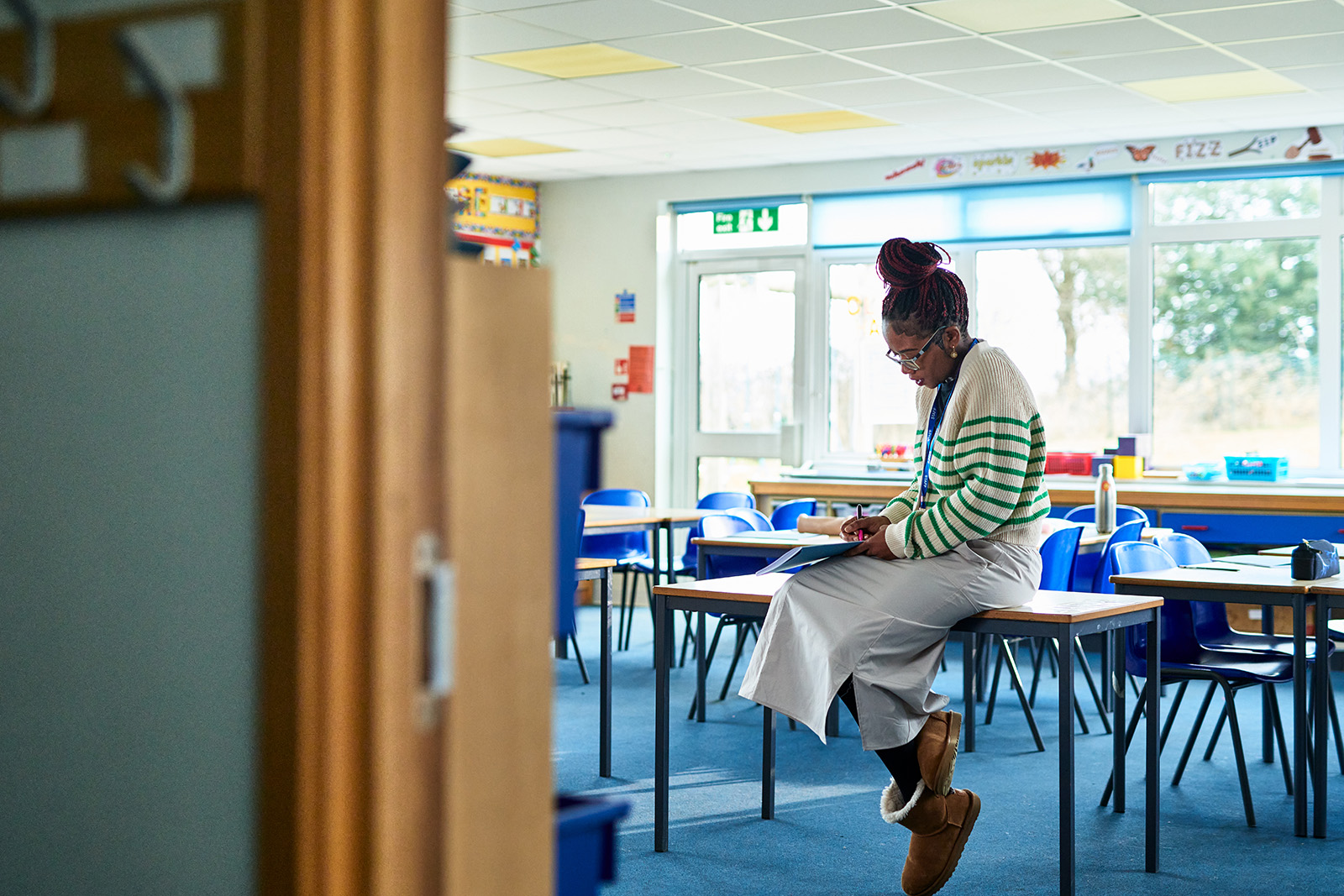Unbearable workloads are making teachers quit UK classrooms
Thousands of burnt-out staff are leaving every year for new careers and jobs abroad

When Mariya Majid became a teacher in 2017, her expectations were idealistic. She imagined herself guiding young people to academic success and offering the kind of support she wished she’d had at school. As someone who had rarely seen teachers who looked like her, she hoped that her presence in the classroom could be an inspiration for children of all backgrounds.
“I thought I’d be part of this really amazing, transformative experience for my students and help set them up for the future,” she says.
Instead, Majid’s first few years as an English teacher at state secondary school in east London consisted of crowded classes, behavioural issues and an ever-increasing slate of administrative tasks that took her away from helping children to learn.
A typical working day comprised at least 11 hours of classroom time, meetings, lesson planning and marking that often spilled into her evenings and weekends. On top of that, as the teacher of a core examination subject, Majid felt she was under intense scrutiny from senior management.
“There was also a lot of pressure around exam results, especially for English and maths, and I’d regularly have other teachers popping into my class to observe,” she says. “I had no time to be experimental or creative with my teaching because there was so much to do. I was working in an environment where I felt constantly monitored, like I wasn’t good enough, and the experience was suffocating.”
Two years in, Majid, 36, was burnt out and wanted to quit. She decided to retrain as an integrative counsellor and qualified in late 2024 after completing a three-year diploma. During her studies, she worked as a supply teacher. Now she plans to set up her own private practice and leave the classroom behind for good.
“As a supply teacher, the whole experience feels lighter and I can enjoy the teaching part of my role more,” she says. “But I’m hoping that through counselling I can support young people in a different way.”
Majid is just one of thousands of teachers across the UK who are leaving the profession. Figures from the Department for Education show that 39,971 teachers quit for reasons other than retirement during the 2022-23 academic year.
A March 2025 report by the National Foundation for Educational Research (NFER) states that 90% of teachers thinking about quitting in 2023-24 cited workload as a key reason. The report also shows that recruitment is down, with six job vacancies for every thousand teachers in service — double the number before the Covid-19 pandemic and six times more than in 2010-11.
Among those who have not decided to stop teaching entirely, a significant number have chosen to take jobs abroad. Popular destinations include the UAE, Qatar and Australia, where salaries are often higher — and, in some cases, tax-free — and packages can include accommodation, flights back home and health insurance. According to the International School Consultancy, in June 2024 roughly 145,000 British teachers were working in international schools overseas — a 50% increase since 2014-15.
Nawar Bello, 32, is one of them. While the start of her career as a chemistry teacher at a state boarding school in Hertfordshire was generally positive, weeks characterised by long hours, Saturday classes and excessive paperwork soon began to wear her down. Then a change in school leadership and an Ofsted review forced her to take on even more administrative duties. In 2022, she packed her bags and left for a position at an international school in Barcelona.
A new study by Robert Gordon University in Aberdeen states that Ofsted inspections lead to bigger workloads and increased pressures to perform, which negatively affect teachers’ mental health. A 2024 poll by the National Education Union found that 72% of teachers had considered leaving the profession because of the demands of Ofsted. Ninety-eight per cent of those surveyed said that inspections had a negative effect on staff morale and wellbeing.
“I see the value in quality-assuring any system, but the way it’s done is not right,” says Bello. “It produces a lot of stress in schools. If your school hasn’t been inspected in years, most of your professional development ends up going into preparing for Ofsted.”
Moving to Barcelona, however, has changed the way she views her job and has introduced a balance between work and life that she found lacking in the UK.
“I really enjoy the slower pace of life here,” Bello says. “I don’t really like the mindset of work in England — it’s that life is just for working, whereas here it’s so different. It’s family first and then you mould your career around that.”
For Majid, however, preparing to leave teaching comes with mixed feelings, as she still feels deep affection for the classroom experience and the students who have touched her life.
“It is the relationships you build with the kids. It’s having them enjoy books, especially the ones that you love, and feeling really excited about that,” she says. “Young people are special, and working with them is a privilege just as much as it is hard work.”
 Newsletter
Newsletter













